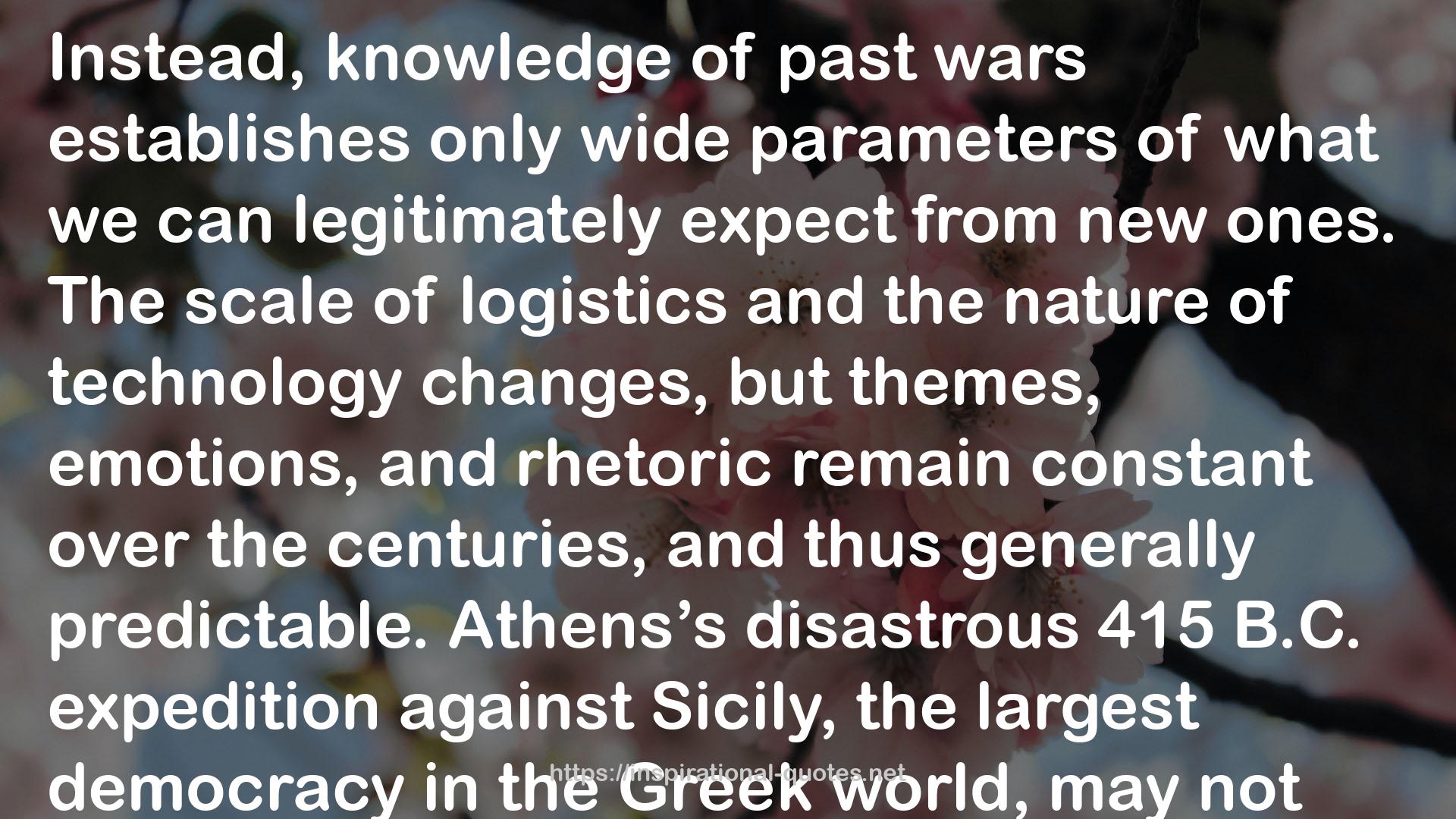" Instead, knowledge of past wars establishes only wide parameters of what we can legitimately expect from new ones. The scale of logistics and the nature of technology changes, but themes, emotions, and rhetoric remain constant over the centuries, and thus generally predictable. Athens’s disastrous 415 B.C. expedition against Sicily, the largest democracy in the Greek world, may not prefigure our war in Iraq. (A hypothetical parallel to democratic Athens’s preemptive attack on the neutral, distant, far larger, and equally democratic Syracuse in the midst of an ongoing though dormant war with Sparta would be America’s dropping its struggle with al-Qaeda to invade India). But the story of the Sicilian calamity and the changing Athenian public reaction to it, as reported and analyzed by the historian Thucydides, do instruct us on how consensual societies can clamor for war—yet soon become disheartened and predicate their support only on the perceived pulse of the battlefield. "
― Victor Davis Hanson , The Father of Us All: War and History, Ancient and Modern
